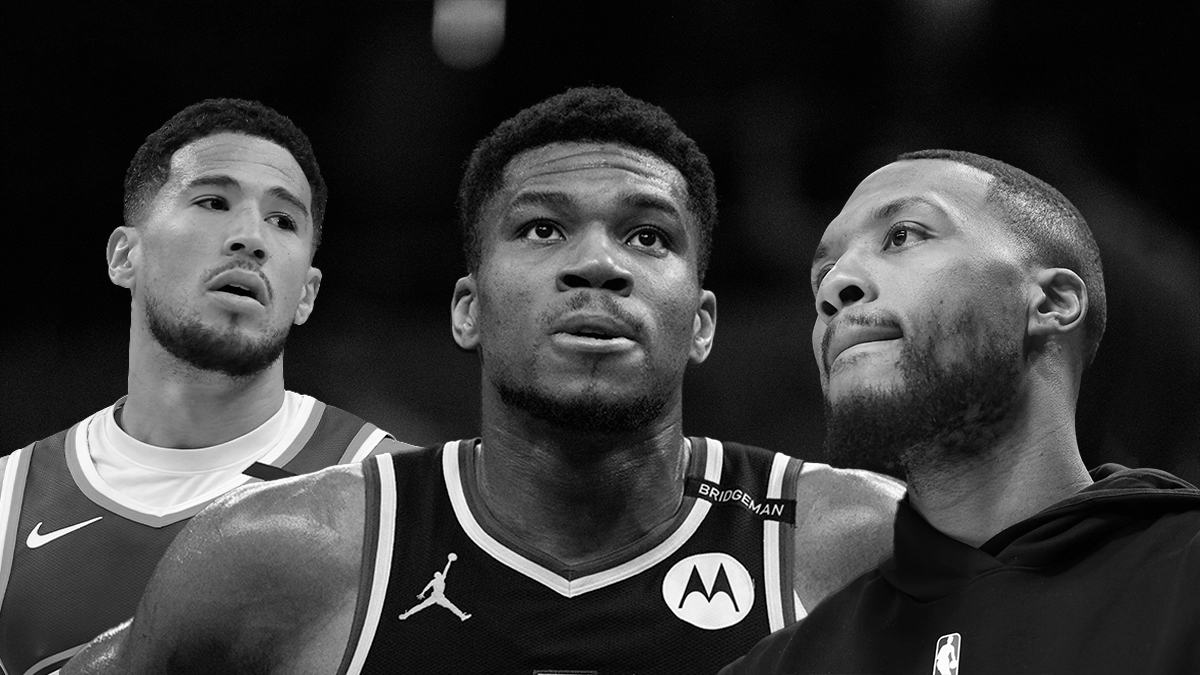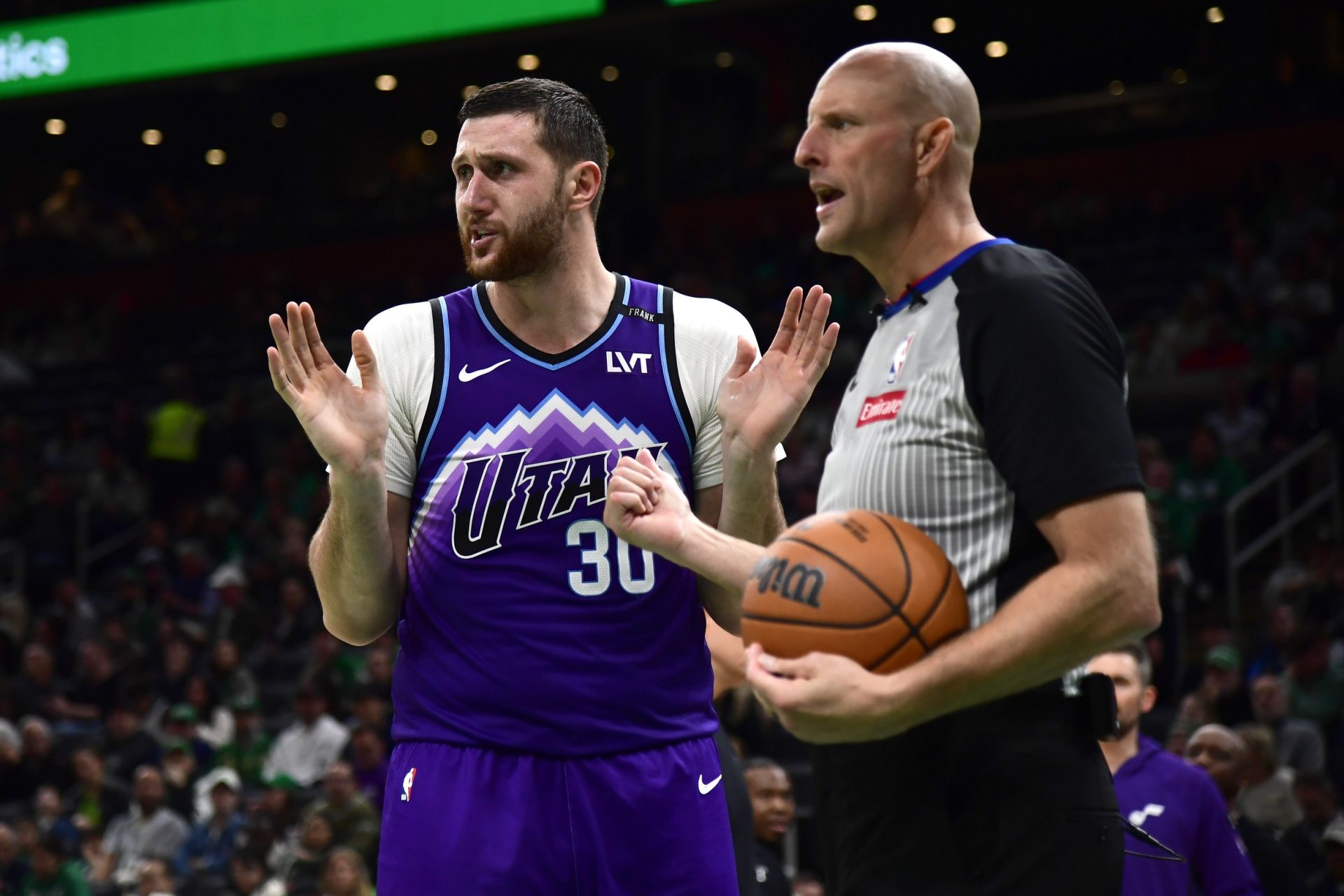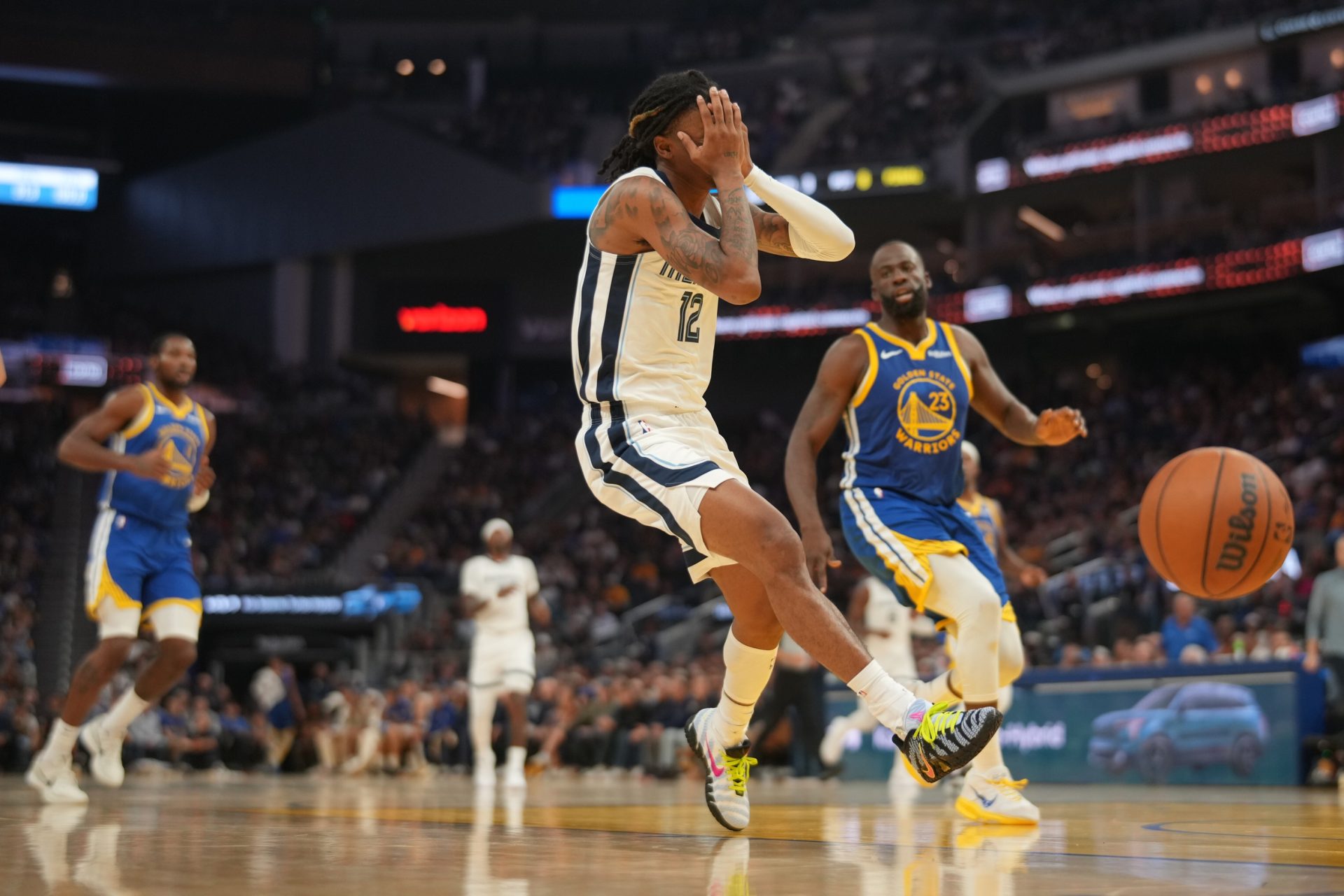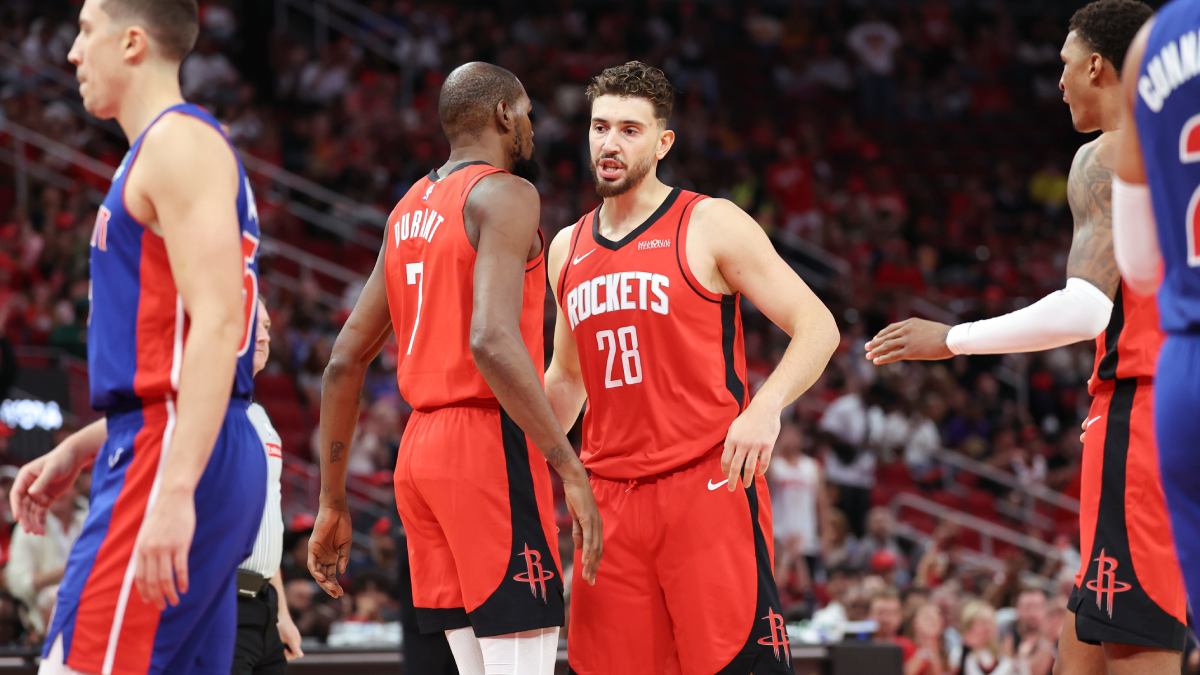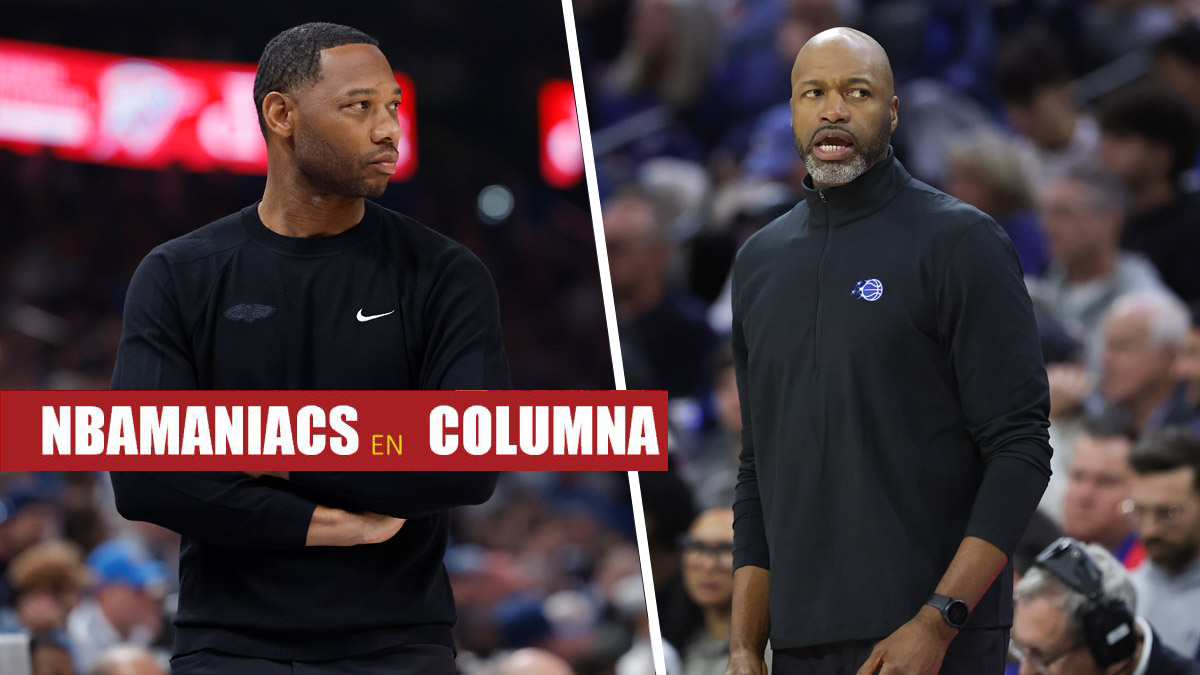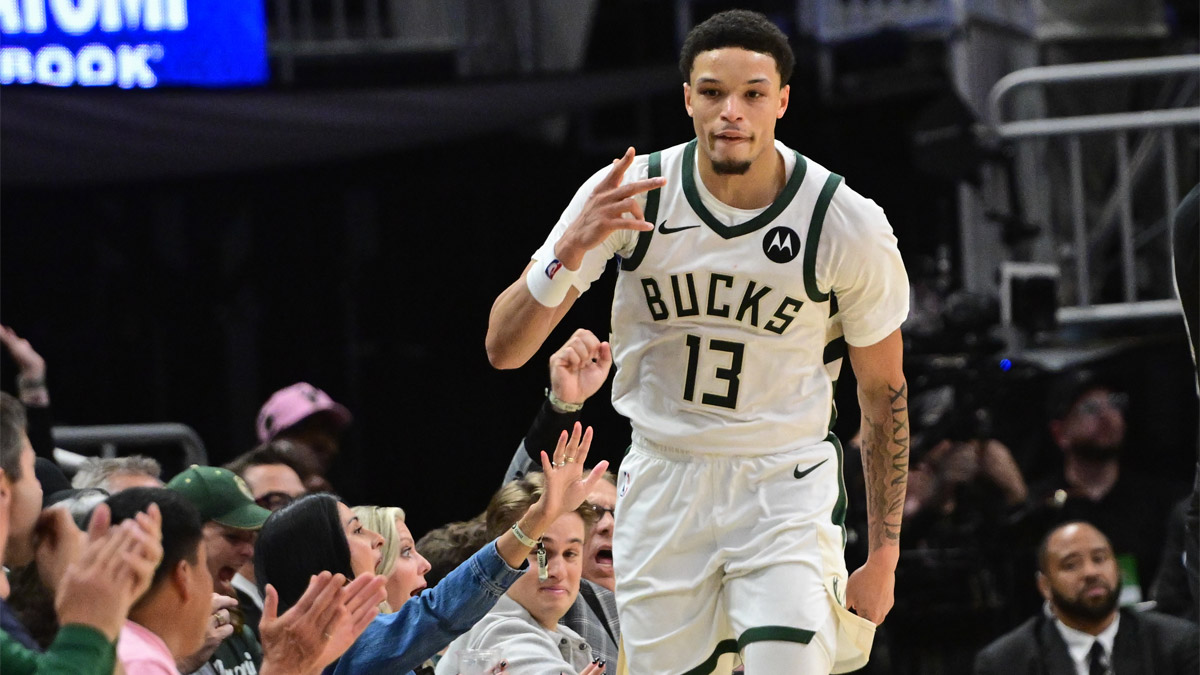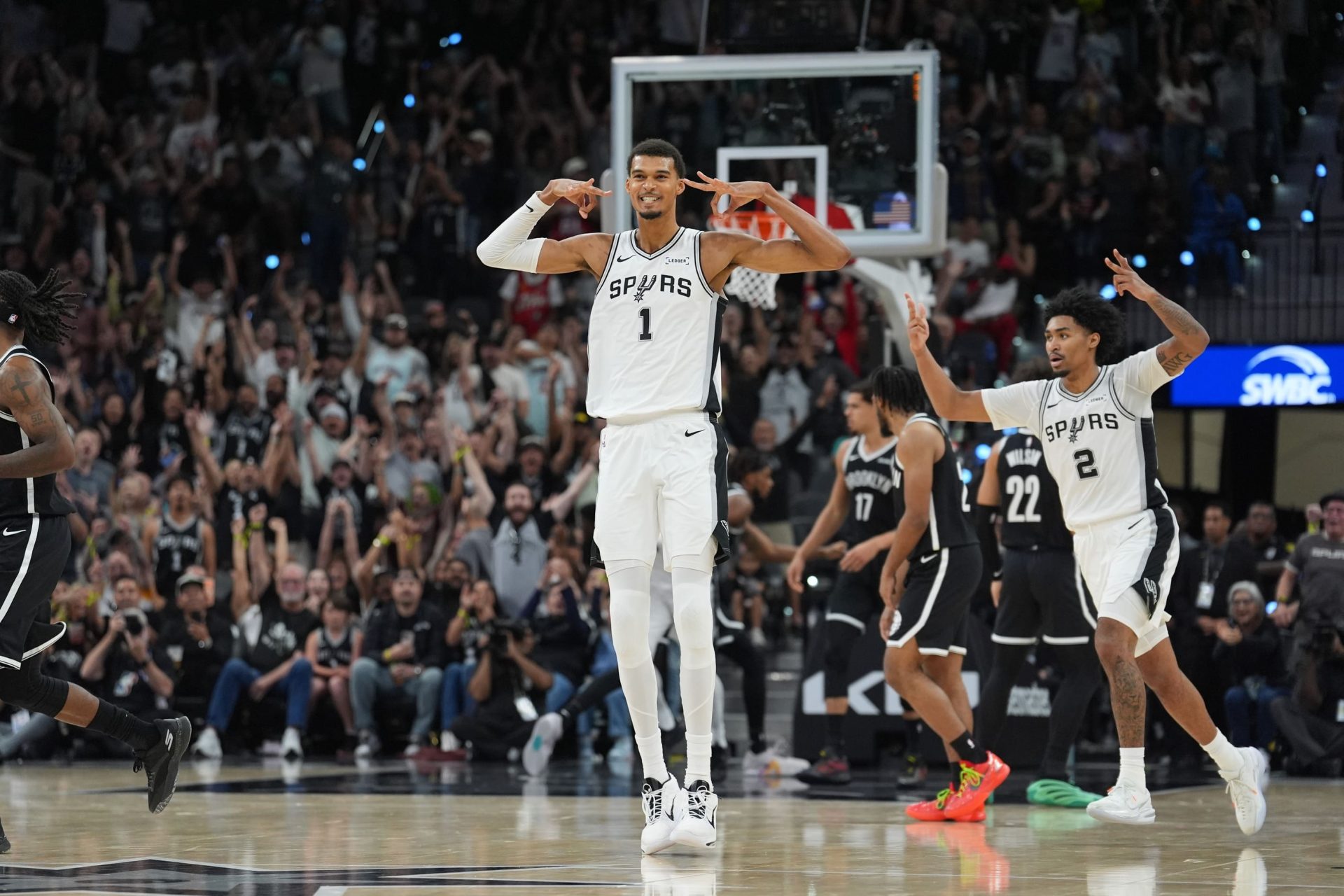A time for moves. A time for analysis.
Trades and free-agent signings arrive, and that’s when the experts in strategy and salary structure shine. Fit, percentiles, trends, cap usage, contract exceptions…
Every move invites a deep dive. Partly to cut through the noise that NBA chatter generates most of the year, a debate fully polarized between the advanced analysis mentioned above and the most childish hot takes. The kind that, in one of the most thrilling NBA Finals in recent memory, can’t find talking points beyond the trite “Is X a superstar?” or “Does X team have what it takes to be a champion?,” followed by arguments with all the depth of instant broth.
However, this offseason has produced a few moves that dodge both approaches. They stray from rationality and are unlikely to enter the ring-chasing orbit that rules the hottest debate shows on American TV.
- Devin Booker extends his contract with the Phoenix Suns for a record amount.
- The Milwaukee Bucks sign the biggest buyout in history by waiving Damian Lillard to make room for Myles Turner
- Damian Lillard returns to the Portland Trail Blazers sidelined with an Achilles injury until well into 2026
Though none of these three moves drastically move the needle for the teams in question, they all come with very different motivations.
Solid ground
From the moment he set foot in the Phoenix Suns’ offices, Matt Ishbia approached his role as owner with a touch of megalomania. Robert Sarver, vilified and exiled for fostering toxic work conditions and xenophobic behavior throughout the organization, was already despised by Suns fans for his well-known stinginess. Ishbia, like a bull in a china shop, aimed to distance himself as far as possible from that idea of austerity and, on his first day as owner, shipped Mikal Bridges, Cameron Johnson, and five first-round picks to the Brooklyn Nets for Kevin Durant.
Following that same playbook and in just over two years, the magnate has cobbled together a Big Three by gutting the rotation and crippling the defense beyond shameful levels, firing three head coaches, hiring three more, forfeiting future draft control, paying record luxury-tax bills, and cutting Bradley Beal after running headfirst into the difficulties posed by his salary and no-trade clause.
A little over a year ago, the owner claimed he was “in a great position” with the team. Such words come from a man whose business background taught him to expect success and perpetual victory (though there’s an asterisk attached to them). The NBA handed him a crash course in failure, and even the fiercest Wall Street shark needs solid ground after a bender like this.
His anchor to reality has been a thorough cleanup of the bachelor pad the Suns had become. He filled the offices with fellow Michigan State alums. Hired his first low-profile head coach (also an ex-Michigan State Spartan). Committed to the franchise icon through 2030.
This season, Devin Booker became the Suns’ all-time leading scorer, passing Walter Davis. That feat firmly inserts him into the debate as the franchise’s greatest player ever, though it was overshadowed by the gloomy state of the team. The past two seasons have been so disastrous that rumors even floated about Booker’s departure. In response, Ishbia didn’t even bother with negotiations, extending him earlier than usual for a 28-year-old fresh off a disappointing season, and giving him a max deal with a player option of at least $69 million when he’s 33.
Sometimes reality steamrolls us, and we think all we need is to surround ourselves with our own. Booker’s not in a position to promise Phoenix everything will work out, but it’s easier to buy soothing words from someone you know has your back.
The player as the source of identity
Remember when the NBA’s ratings practically turned into a national debate last December? Then came the Luka Doncic trade, a bounce in the numbers, and all that talk faded away. The slump in viewership was never truly alarming given the broader struggles of traditional TV in the United States over the past five-plus years, especially under the new TV deal.
Rather than stir interest in the actual reasons behind the dip in viewership—impossible to pin on any single factor—people focused on what fans perceived as issues with the NBA product and its packaging. One of the most cited problems was the sense of disconnection.
Some blame LeBron James and “The Decision.” Others blame Kevin Durant and his move to Golden State. The bottom line is constant star movement and salary-cap constraints have led to an NBA where nothing lasts and it’s tough to see a team’s long-term vision. It pines for the Wilt vs. Russell, Magic vs. Bird, Jordan vs. the Pistons, Bryant vs. Duncan, or LeBron vs. Curry matchups that fueled the league’s history.
The constant star shuffle saps each franchise’s sense of identity, and by extension, the NBA’s. In this current landscape, no organization has tied its fate to a single individual quite like the Milwaukee Bucks have with Giannis Antetokounmpo.
Sure, the Warriors will always look for the best way to build around Curry, or the Denver Nuggets will search for ways to maximize Nikola Jokic. It’s what any team does with a star they believe can take them to the top—well, except Dallas, of course. The Bucks, however, are driven by a borderline sweet desperation. Jon Horst and company are so afraid of losing Giannis that they’ve turned faith into a business model.
The badge below the player
In 2020, after winning back-to-back MVPs, the Greek star let rumors of his discontent fester the same summer he was eligible for an extension. Before the next season began, Jrue Holiday arrived in Wisconsin, and Antetokounmpo signed his new deal. Seven months later, Milwaukee secured the second championship in franchise history.
In 2023, after a first-round loss to a Miami Heat team that came out of the play-in, Giannis hinted at his discontent with the lack of roster moves. Again, he was up for a contract re-up. As summer wound down, Damian Lillard arrived in exchange for Jrue Holiday, creating a promising offensive duo with the Greek Freak, who once again signed an extension through 2028.
In 2025, the Lillard trade is stamped a failure, capped by Dame’s torn Achilles that plunges the Antetokounmpo era to a new low. There doesn’t appear to be a way to field a competitive roster. It seems impossible for Giannis not to request a trade when the Bucks sign Myles Turner right before the bombshell of Lillard’s ethically questionable buyout drops.
Meanwhile, despite dropping a few hints, the player hasn’t made a definitive statement regarding his future. He didn’t seem aware of Jon Horst’s plans, just as he seemed out of the loop prior to Lillard’s arrival. All of which, if true, opens a telling window on how badly the Bucks want their star’s approval. In European and Latin American sports, people often say the badge comes first. But that motto doesn’t carry the same weight in American pro sports.
It’s not just about merging the franchise’s identity with the image of its most important player ever and giving the fan base a permanent, untouchable figure to rally around. Looking at the cold numbers, losing Giannis means losing a lot of money in ticket sales, jersey sales, national TV games, sponsorships, and everything else that comes with a media magnet like the Greek Freak.
Milwaukee, one of the five smallest media markets in the NBA, knows full well that obscurity likely awaits once Giannis is gone. It’s the same obscurity the franchise floated in—more or less—after Kareem Abdul-Jabbar’s departure until Antetokounmpo’s breakout.
Waiving Damian Lillard tightens their long-term salary flexibility (five years of paying $22 million in dead cap), and Turner won’t fix the playmaking, perimeter-defense, and depth issues plaguing this Bucks roster. But that move buys the chance to keep Giannis Antetokounmpo. If your choice is living on the illusion of a rebuild or living off the promise of having one of the best players in the world, you pick the latter.
Bitterness toward the prodigal son
With Damian Lillard’s return to Portland, the spotlight has been on the player’s regret. Indeed, the point guard never truly seemed comfortable outside Oregon. He went through a divorce, left most of his friends and family there—along with his children—and basketball gave him little solace. Turning down offers from more ambitious teams shows that his focus on loyalty wasn’t just lip service; he genuinely sees Portland as home.
However, given how the negotiations played out, it appears the more remorseful party is the Blazers themselves—specifically Joe Cronin. The franchise’s general manager is seen as the key force behind Lillard’s departure in the first place. Hired on an interim basis in 2021 and made permanent in 2022, Cronin’s moves suggested he no longer believed Dame could lead a contender. Drafting Scoot Henderson with the third overall pick in 2023 was the final straw.
It’s said that history will note it was Lillard who requested the trade. But they practically pushed him to do it, and when he tried to backtrack, Cronin shut him down immediately, saying there was no turning back. Cronin—fully aware of Lillard’s situation—was the one who reached out to arrange a meeting to mend fences and set in motion a plan to bring Dame back to the place his heart has always belonged. That required waiving Deandre Ayton a year before his deal expired.
Looking at it now, the Blazers will secure the retirement years of a franchise legend for far less money than they originally pledged in 2022. Offering him the full mid-level ($14 million) to keep him from hesitating over other offers was a moral obligation Joe Cronin imposed on himself.
This move isn’t about financial or on-court returns. Lillard won’t suit up until the 2026-27 season, doing so after basketball’s toughest injury to recover from, and at a point in his career that clashes with Portland’s current plan.
Redemption and loyalty can’t be measured in dollars. Emotions push everything else into the background. In case we forgot that real people run this league, this summer reminded us of the NBA’s humanity, with all its virtues and flaws—even if it’s all still a business.
(Cover photos by Mark J. Rebilas/Jaime Valdez/Trevor Ruszkowski-Imagn Images)
